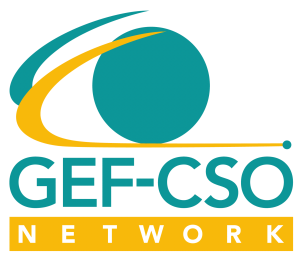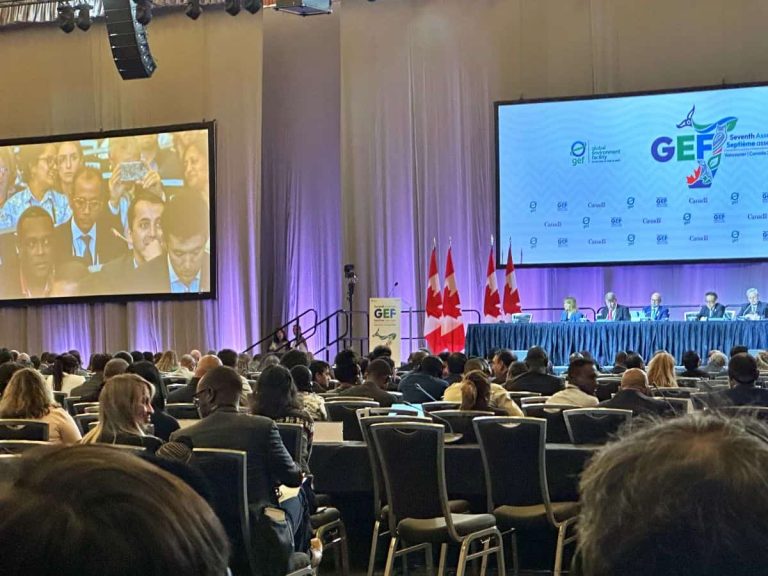Introduction
Session 2 of the Whole of Society Talks webinar series continued the conversation on ensuring that the Global Environment Facility (GEF-9) delivers on its promise of inclusion and accountability. Stakeholders across youth, women, Indigenous Peoples, and civil society gathered to share concrete inputs, real-world challenges, and a roadmap to make GEF-9 more equitable and transparent.
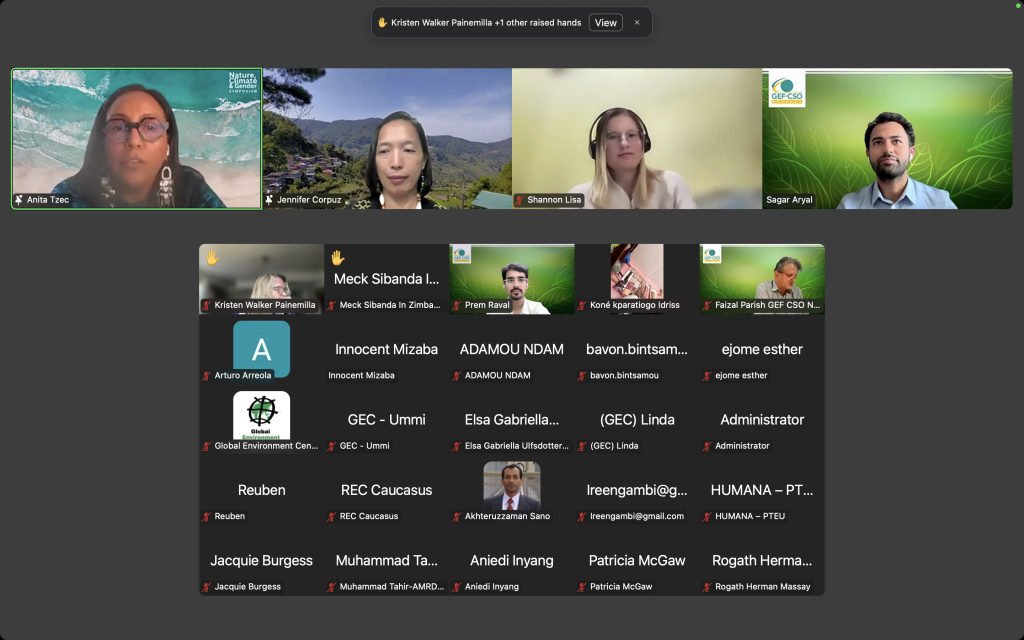
Key Themes Explored
- Embedding meaningful stakeholder engagement in project design
- Improving transparency and tracking of funding flows
- Enhancing guidelines for agency accountability
- Opening spaces for CSOs in project preparation
Speaker Insights
Dr. Anita Tzec – IUCN
Dr. Tzec emphasized that Indigenous Peoples must be recognized not just as stakeholders, but as rights-holders. She shared that the GEF Indigenous Peoples Advisory Group (IPAG) is advocating for projects that uphold FPIC (Free, Prior, and Informed Consent), and the need for metrics that measure how well agencies are delivering on inclusion mandates. She also pointed out that safeguards should not just exist on paper but must translate into practical benefits at the grassroots level.
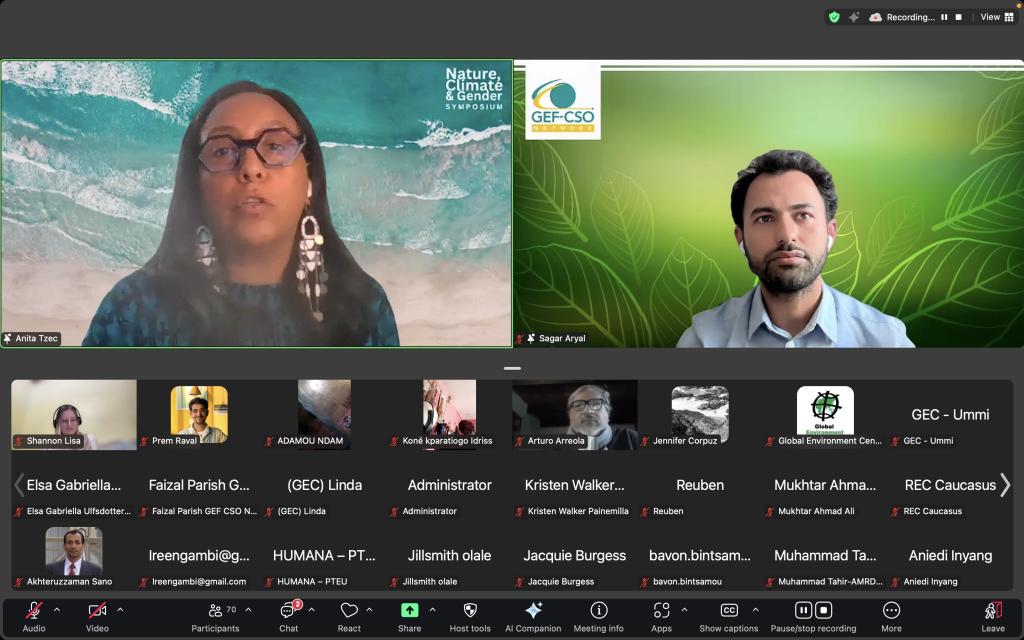
Shannon Lisa – Youth Platform, MGCY
Representing the Chemicals and Waste Youth Platform, Shannon made a passionate appeal for youth to be included at every stage of GEF project planning—not just during consultations but as core project partners. She highlighted a persistent issue: the burden of legitimacy often falls on the youth themselves. She advocated for institutional pathways that allow youth-led organizations to access GEF funding more easily and transparently.
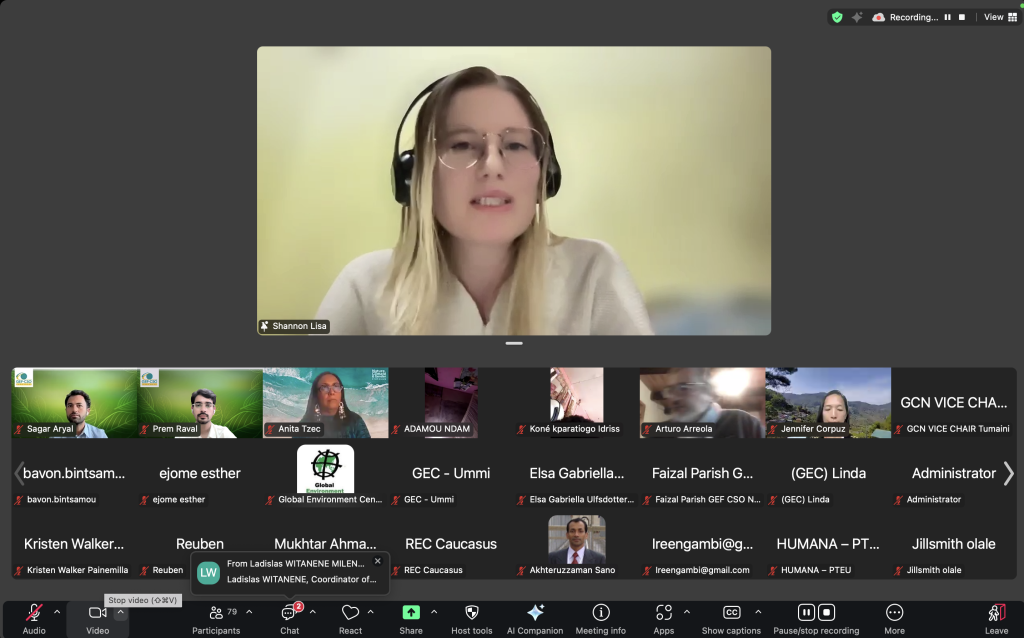
Jennifer Tauli Corpuz – Nia Tero
Jennifer shared hard-hitting insights on how Indigenous Peoples have historically had to fight for space in global environmental decision-making. While GEF-8 laid the groundwork for better engagement, GEF-9 must push further by ensuring long-term institutional support for Indigenous networks, simplified access to finance, and respect for cultural governance systems.
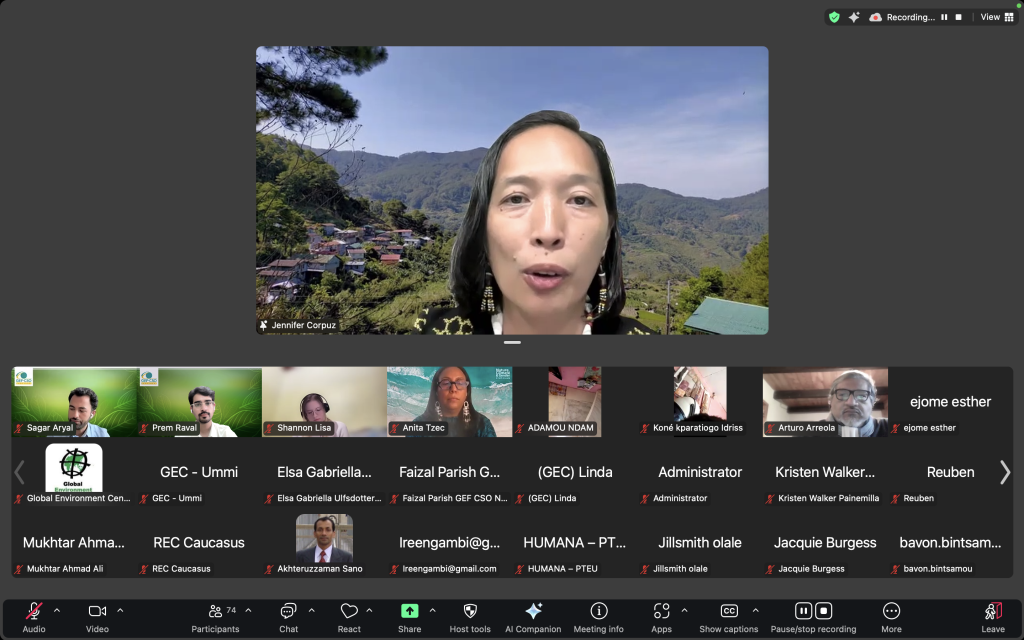
Arturo Arreola – GEF CSO Network
Arturo brought in a regional perspective from Mesoamerica, spotlighting the role of CSO networks in facilitating access, raising awareness, and translating GEF processes into local languages and contexts. He reiterated that accountability cannot be one-directional: communities must have the power to monitor and evaluate GEF-funded interventions as well.

Actionable Takeaways
- For GEF Agencies: Co-create transparency dashboards to show how funds are being used, broken down by gender, youth, and Indigenous inclusion.
- For CSOs: Build regional coalitions to advocate for simplified documentation, translated materials, and pre-application workshops.
- For GEF Secretariat: Institutionalize mechanisms like the Indigenous Peoples Advisory Group and Youth Platforms with sustained funding and decision-making power.
Closing Reflections
Faizal Parish, Chair of the GEF CSO Network, closed the session by reflecting on the importance of embedding the “whole of society” approach into GEF-9—not as a tick-box exercise, but as a foundational principle. He emphasized that it’s not just about projects—it’s about justice, empowerment, and climate solutions that work for everyone.
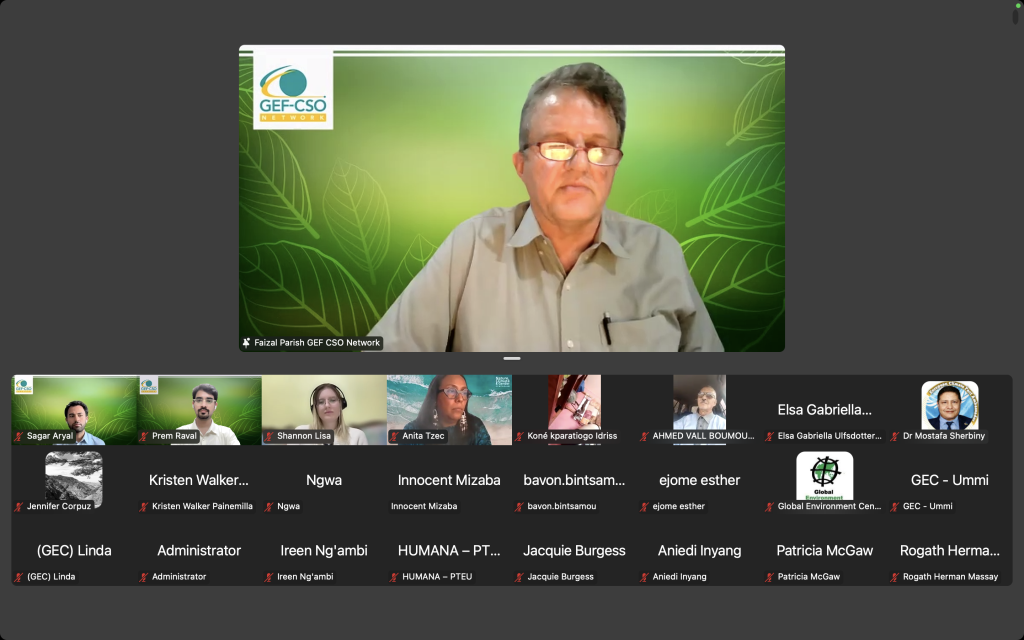
As GEF-9 evolves, the voices from this session must not be left behind. From rights-holders to future leaders, every voice must shape the impact.
Read the blog on Session 1 here
Stay tuned for Session 3 of the Whole of Society Talks Series.
